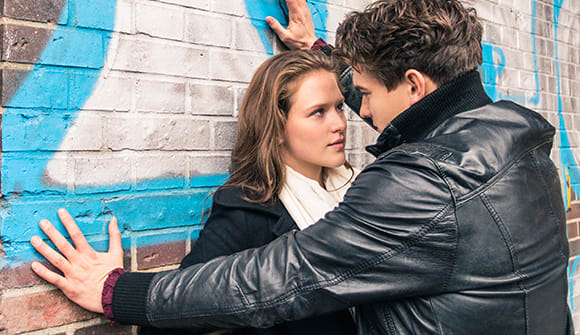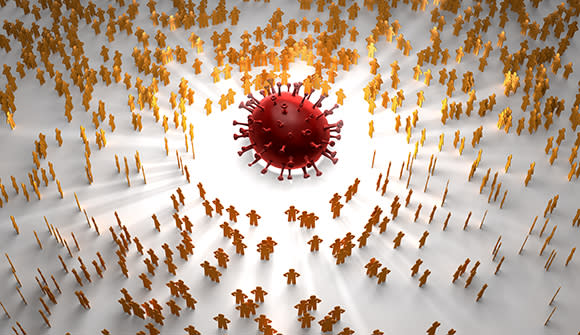Teen dating trauma
Abuse and violence don’t only happen in adult relationships.
Article Date:

It's natural for parents to pay close attention to the people their children spend time with. When a teen starts dating, a whole new element of concern arises. An estimated one in 12 high school students reported having experienced physical dating violence, and one in 10 had experienced sexual dating violence, according to the Centers for Disease and Control and Prevention (CDC).
“Dating violence doesn’t only impact adult relationships,” said Jennifer Arevalo, LCSW, behavioral health prevention coordinator for THE PLAYERS Center for Child Health at Wolfson Children’s Hospital. “Many young people struggle with navigating the boundaries of a healthy versus unhealthy relationship. It helps to define what exactly dating violence is. According to the National Sexual Violence Resource Center, dating violence includes physical, emotional, sexual or digital abuse in a current dating relationship or by a former dating partner.”
How can you make sure your child, or a teenager you care about, doesn’t become part of those statistics? It’s important to know the warning signs of an abusive relationship, have open lines of communication, and provide plenty of resources.
Red flags of dating violence
Sometimes, the signs of abuse can start so subtly that not even the victim realizes it’s occurring.
Potential warning signs include:
- Extreme jealousy or insecurity
- Possessive or controlling behavior, like checking your phone or social media without permission
- Pressure to be intimate
- Belittling or demeaning behavior
- Physical, financial or emotional isolation from friends or family
- Explosive outbursts, temper or mood swings
- Any physical violence
“Healthy relationships are built on a sense of mutual respect and safety,” Arevalo said. “There’s an assumption that young people should know what that looks and feels like. Parents, teachers and other trusted adults can have preemptive discussions with kids and teens about healthy relationships, creating boundaries, and warning signs to look out for.”
Intervention suggestions
Even adults in unhealthy relationships may have difficulty realizing it, so how can you get through to your teen if you’ve noticed an abusive partner? If you think your child is in danger, coordinate with schools and law enforcement immediately to ensure his or her physical safety.
When it comes to talking with your child, Arevalo provided a few tips from the National Domestic Violence Hotline:
- Accept what they’re telling you. Being judgmental will make your teen feel worse and decrease the likelihood that they will come to you for support when they need it.
- Allow them to make up their own mind. Leaving an abusive relationship can be challenging and, in some cases, dangerous. Remember, abuse is about control, so making decisions for your child can often add to the powerlessness they’re already experiencing.
- Don’t prevent them from seeing their partner. Controlling their actions will make them more likely to keep secrets from you. Additionally, forcing a separation may be something their partner uses as “proof” that other people are the problem.
- Don’t give up. Your instinct may be to remove your child from harm’s way immediately. However, abusive situations aren’t that simple. Even though helping can be frustrating when you don’t understand or agree with your child’s decisions, they need to know they can trust you and depend on you for support.
Abuse-proof your teen
While parents and trusted adults can’t protect teens from everything, they can arm themselves with the information to recognize the warning signs and provide help when someone needs it.
One of the simplest ways to do that is to help your child understand what healthy and unhealthy relationships look and feel like.
- In healthy relationships, you make decisions together and can openly discuss relationship problems. You enjoy time together, but can also be happy apart.
- In unhealthy relationships, one person tries to make most of the decisions. He or she may try to pressure the partner about sex or refuse to admit hurtful actions. In an unhealthy relationship, you feel like you need to spend time with only your partner.
- In abusive relationships, one person is making all decisions, including friend groups, sexual choices and boundaries. The abuser’s goal is to have all the power and control. The victim may feel like he or she can’t talk to other people, especially about what’s really happening in the relationship.
“As parents and caregivers, we should strive to be a safe space for our children,” said Arevalo. “Creating trust and a feeling of safety as a parent is an ongoing process that evolves as children grow older and seek more independence. When it comes to parenting teens, this often looks like a balancing act between prioritizing safety and allowing teens space to make their own choices.”
Don't avoid difficult conversations with your teen
Common Thread by Wolfson Children’s has tools to support children’s mental health and help kids and teens navigate challenges with confidence and care. To learn more, visit wolfsonchildrens.com/commonthread. If you need to speak to someone immediately, call the Wolfson Children’s 24/7 Kids & Teens Helpline at 904.202.7900 or text LIFE to 741741.



